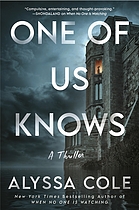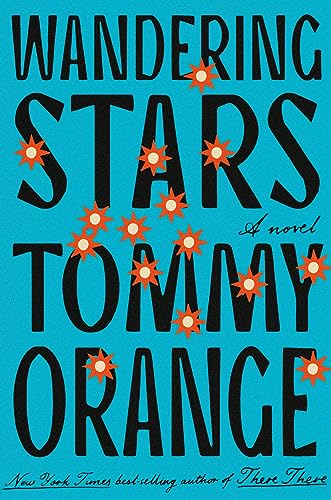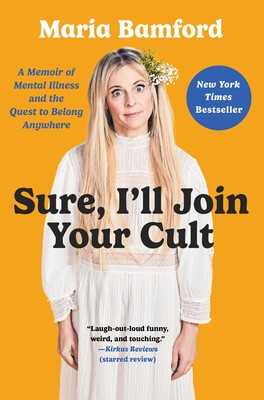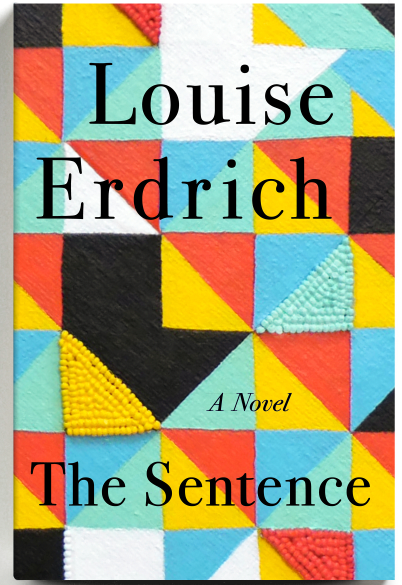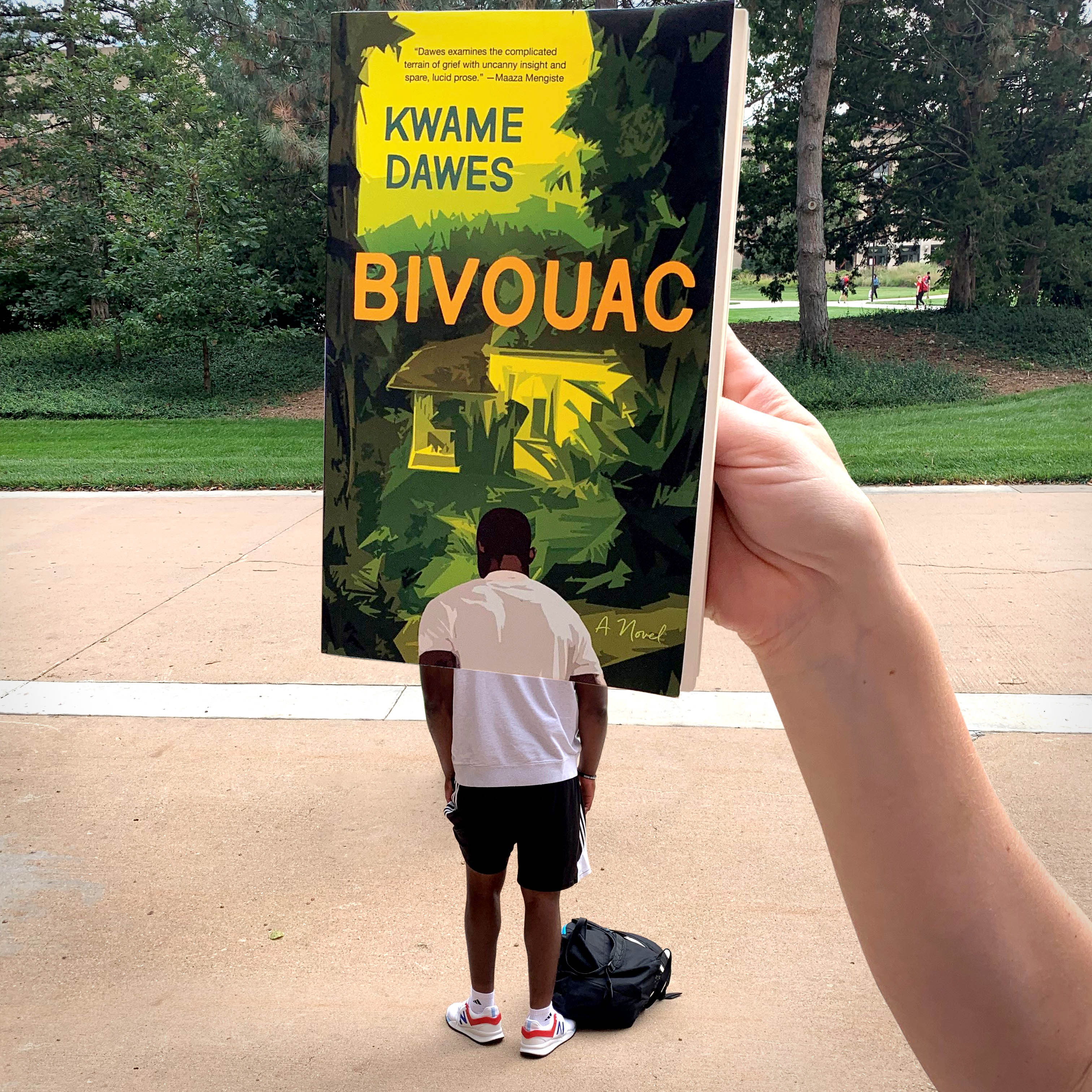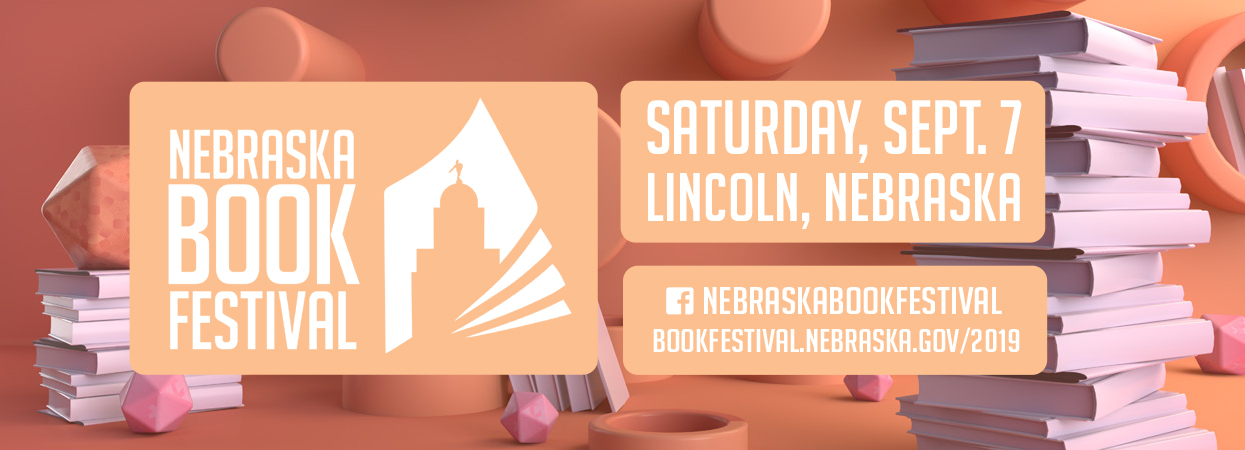Search the Blog
Categories
- Books & Reading
- Broadband Buzz
- Census
- Education & Training
- Friday Reads
- General
- Grants
- Information Resources
- Library Management
- Nebraska Center for the Book
- Nebraska Libraries on the Web
- Nebraska Memories
- Now hiring @ your library
- Preservation
- Pretty Sweet Tech
- Programming
- Public Library Boards of Trustees
- Public Relations
- Talking Book & Braille Service (TBBS)
- Technology
- Uncategorized
- What's Up Doc / Govdocs
- Youth Services
Archives
Subscribe
Author Archives: Lynda Clause
Friday Reads: A Lost Lady, by Willa Cather
While I was enjoying some Barbara Stanwyck films on Turner Classic Movies (star of the month for March 2025), I saw something that surprised me—a mention of Willa Cather in the opening credits for A Lost Lady (Warner Bros., 1934). I’d heard of the 1923 book that Willa Cather wrote with that title, but I’d assumed this was a coincidence. I don’t know as much about Willa Cather as many other Nebraskans might (who might also be reading this right now—hello everyone, in the state and elsewhere, who has a Google alert for Willa Cather! You are a devoted bunch!), but I didn’t remember seeing Cather’s name associated with a relatively contemporaneous movie before.
(This 1934 movie was the second attempt to bring the hit novel to the screen. The first try was in 1924, directed by Harry Beaumont and starring Irene Rich—but don’t go looking for that version, because according to IMDb and others, there are no existing prints of that 1924 movie—it’s considered as “lost” as its title character.)
According to film critics in 1934, this second attempt to bring the book to the screen was a disappointment, despite the popular cast. The review in the New York Times suggested changing the title and removing Cather’s name from the credits, and that the film lacked “the haunting beauty of the book.” The 1934 movie was such a disappointment to Cather that it is said to be the reason there were no more movies made of her works in her lifetime.
After looking into the adaptation history, I had to pick up the book. Since A Lost Lady is old enough (1923) to be in the public domain, there are many versions online for reading or listening, as well as many reprints and editions in physical form. The Willa Cather Archive at UNL, for one, has it (and many related materials worth looking at) online.
To be fair, it would have been difficult to make A Lost Lady into a successful movie that stayed faithful to the text. The book opens with setting the physical and social scene in a way that would have been a challenge with the film technology at the time. That is soon followed, in the book, by a scene of animal cruelty and body horror that could not have made it onto the screen at the time either, for other reasons. These limitations might explain why the filmmakers re-ordered the narrative events of the text, but that re-ordering takes away an important “reveal” of some character development. Also, Nebraska, as a place, is missing from the movie entirely.
Another challenge for the film is the casting. If someone read a synopsis of the book but didn’t actually read the book, it would sound great to cast Hayes-Code-inspiring, 1930s-era Barbara Stanwyck, who excelled in playing flawed, charismatic women who would do what it takes to survive. This is what her studio and her fans would want from her performance, and they’d be rooting for her through stumbles and successes—and this is not quite what the book is about.
A Lost Lady (the book) is about a young man, Niel Herbert, who is enthralled with, and eventually disillusioned by, the charming Marian Forrester, who indeed does what it takes to survive, and Niel does not like the choices Marian makes. The book succeeds where the movie flounders, because we see Marian’s do-what-it-takes choices through the gaze of Niel—and Niel is the person with whom Cather intends the reader to identify—not Marian. Also, in the movie, Niel is the same age as Marian, which completely changes their dynamic.
This difference gives nuance to the book, while the movie becomes an ineffective morality play (with a very different ending). One could argue the first half of the movie is more fair to Marian than the book ever is (and then falls apart in a frustrating fashion that I had to re-wind twice so make sure I wasn’t missing something), but, to be fair, the book is never really trying to make excuses for Marian. It’s up to the reader to complete any circuit of sympathy and understanding for the choices she feels she must make. I think the reader can handle this responsibility better than Niel does.
Reviews of the book see symbolism that don’t follow through to the film adaptation. In the book, the reader can see how Niel might represent the American westerner of the era, who’s been promised a promise—a future that’s as bright as one wants it to be. And the Marian of the book might represent the American West—charming, wild, just out of reach, something the protagonist could fall in love with the idea of—but which can’t live up to unreasonable expectations projected upon it, at least not for a member of the current generation, born too late to enjoy what the previous generation seems to have handed to them (of course, it wasn’t handed to them either, and not in any lasting way).
In that sense, A Lost Lady, published in 1923, is an emblematic story for the 1920s, even though much of the action happens earlier. (Correspondence between Cather and F. Scott Fitzgerald noted the similarities of Marian Forrester and Daisy Buchanan, another Roaring Twenties woman-as-embodiment of male desire-turned-to-disillusionment.) Having said that, it’s still a timeless story. Part of growing up is realizing that some things you thought you wanted just won’t make you happy, partly because you didn’t really understand them in the first place.
A Lost Lady is a quick read, or listen—and well worth your time, whether you’re new to Cather or not. (Just remember you don’t actually have to agree with Niel about everything, even if you do agree with him about some things.) Even as such a slim volume, it is lush with the landscape-as-place and dynamic domesticity for which Cather is known and celebrated.
The un-lost 1934 movie might be only for the Barbara Stanwyck completist—if you’re willing to put up with the inconsistencies of her character, and the unfortunate stereotyping of one of the house staff characters, which is more extreme than in the book. I have to note that the Orry-Kelly wardrobe is amazing—it might be the best part of the movie.
Cather, W. (1923). A lost lady. Alfred A. Knopf.
Some additional notes:
Of interest to Barbara Stanwyck and classic film fans: look at this Warner Brothers pressbook for the 1934 movie, courtesy of the Wisconsin Center for Film and Theater Research and The Internet Archive
Also: did you know Barbara Stanwyck married a Nebraska-born fellow Hollywood star a few years after this movie? That would be Robert Taylor.
Of interest to Willa Cather fans who are also Ethel Cain fans (there’s a definite crossover here, if you know, you know): Ethel Cain is going back out on tour in 2025! No stops in Nebraska this time.
Posted in Books & Reading, Friday Reads, General
Tagged Friday Reads, Reading, Willa Cather
Leave a comment
Friday Reads: One of Us Knows, by Alyssa Cole
Kenetria Nash finds herself on her way to her new historical preservationist job, as an archivist for a noteworthy home on an island in the Hudson River, with no memory of what’s happened for the past six years—including applying for, or accepting, this new position. A position that seems too perfect to be real. A huge storm is about to hit the island and any boats trying to reach it, cell service is out, and Kenetria—who goes by Ken—is going to have to dig deep for answers, but not in the way the reader might expect.
Alyssa Cole takes an innovative approach to worldbuilding in One of Us Knows, with most of the characters in the book all existing inside one person, Ken. Ken experiences dissociative identity disorder (DID), which used to be known as multiple personality disorder. In this story, all of Ken’s identities, or alters, are fleshed-out characters with motivations, strengths and weaknesses–and while some of them do communicate with each other directly, the whole group has agreed to maintain their system’s communication and survival with an online journal. Some of the alters are behaving in unexpected ways, though—which might be as a result of stress brought on by the fairly new COVID epidemic (the book is set in 2022), or because of something else entirely. But could one of the alters be a murderer? Ken also finds herself in the position of having to figure that out, to save herself and her system.
Cole keeps the internal and external action going at a dizzying but well-sorted clip, and pokes fun at expected psychological horror, thriller, and haunted house tropes. The characters experience parallels between the COVID pandemic and the 1918 influenza epidemic, which affected the original inhabitants of the creepy, castle-like house—the notorious house that hosts much of the action, in more ways than one. Some of the alters use humor as a defense mechanism, which makes for plenty of wisecracks as the mystery of their trauma unfolds, and as the suspense builds. The pace moves fast enough that the reader doesn’t have time to guess what’s around every turn, and most of those guesses would be wrong, anyway. A fresh, unabashed thriller that tackles heavy topics with a deft touch, One of Us Knows is a great read for a stormy weekend.
Cole, A. (2024). One of us knows : a thriller (First edition). William Morrow, an imprint of HarperCollins Publishers.
Friday Reads: Wandering Stars by Tommy Orange
Tommy Orange’s latest book, Wandering Stars, is both a prequel and a sequel to his Pulitzer Prize finalist, There There. Wandering Stars was recently longlisted for the Booker Prize, and seeing that news reminded me I needed to check this book out. If you read There There, you know that Orange adapts narrative structures with more success than a reader might expect. Wandering Stars takes this distinctive world-building further—it’s more of a world rebuilding after a world destruction. It’s heartbreaking and breathtaking at the same time.
Orange is an enrolled member of the Cheyenne and Arapaho tribes of Oklahoma. He lives in Oakland, California, and the Bay Area is often featured in his writing. I’m going to quote the publisher for a quick synopsis that I can’t improve upon: “Wandering Stars is a novel about epigenetic and generational trauma that traces the legacies of the Sand Creek Massacre of 1864 and the Carlisle Indian Industrial School through three generations of a family.”
You don’t need to know the violent colonial history, already, to understand the story. Orange fills in enough detail for the most unacquainted reader to understand the context, and still relates the history in a poetically short (yet relevantly detailed) way. He does this so effectively that a reader, who might be previously familiar with facts about boarding schools and massacres, will somehow get a freshly horrible perspective on the history, and what it means for the characters’ lives and relationships.
I enjoy how Orange creates his characters on the page, and how they exist within context of each other. Even when a character can’t face sharing their pain with others, or face sharing the pain (or happiness, or acceptance) of others, they find they can’t escape this demanding, rewarding intersection of other identities. People are important to other people, and it’s a dynamic, fluctuating, frustrating, and wonderful thing.
I remember telling someone that I had listened to the audiobook of There There, and that person wondered how well the audiobook could work, considering the multiple narrator technique Orange used in the book. It had worked very well, I assured them—my only disappointment with the CD-format audiobook was that the last disc only had a couple of tracks on it, total–so that when I put the last disc into my car stereo, I only had a few moments of story left, when I expecting a whole disc’s worth of tracks. I appreciate finally having more of the story—from before, from after, from the stars on down.
Orange, T. (2024). Wandering stars (First edition). Alfred A. Knopf.
Friday Reads: The Last Man, by Mary Shelley, with a new foreword by Rebecca Solnit
When I read that Rebecca Solnit wrote a new foreword for a Mary Shelley book, and it was one I hadn’t read yet, The Last Man, I jumped to acquire the new Penguin edition. Solnit writes so eloquently on many topics close to my heart, and Shelley’s Frankenstein is one of my favorite books—I reviewed it for this blog some time ago, here.
We knew Mary Shelley invented the Frankenstein genre, of course, and is often credited (correctly, I would say) with writing the first science fiction novel when she did. It turns out that a few years later, she also wrote the first Western novel about human extinction, as well as the first book in the genre now known as “climate fiction.” When Shelley wrote this book, The Last Man, the skies over Europe were dark because of a volcanic eruption, a cholera epidemic was cutting swaths out of the human population, and England’s political parties were battling over the future identity of the country. The author was also dealing with terrible personal loss, including the recent death of her husband, the poet Percy Bysshe Shelley, and their special friend, the poet Lord Byron.
This dystopian novel, set in the late twenty-first century, was not well-received by critics or the general public when it was published in 1824, but modern readers find much to explore and enjoy here. (Perhaps the book was “ahead of its time” in more ways than one.) Shelley invented lore about “finding” secret writings in a cave in Naples that she fashioned into this text, with a story that runs from 2073-2100. The foreword to the 2024 edition, by Rebecca Solnit, expertly connects Shelley’s concerns with ours, two hundred years later.
If you’d like to read or listen to an earlier edition of this novel right this minute, you’re in luck, because it’s 200 years old so it’s definitely in the public domain! The Internet Archive has many options to read the work (here is one option for volume 1 of 3) and Librivox has free audio (here is one option). I appreciate how many wonderful texts and works are available through the Internet Archive—if you haven’t explored there, this is a great time to start.
And if you’re in Nebraska, we have a couple of editions (from 1993 and 2006), from University of Nebraska Press, in our circulating collection to check out. You can search our OPAC here to request a copy.
Shelley, M. W., Solnit, R., & Havard, J. O. (2024). The last man. Penguin Classics.
Friday Reads: Sure, I’ll Join Your Cult by Maria Bamford
Ever since a friend recommended her breakout television series, Lady Dynamite, I’ve been a fan of Maria Bamford and her singular comedy style. In her new memoir, Sure, I’ll Join Your Cult, she discusses her desire to belong to something, anything, that makes sense of her life and what’s happening in her brain—and how well that challenge goes, or doesn’t. You will be rooting for her as she describes her journey, and as she illustrates the characters she meets along the way—people and organizations that are more than willing to offer her the security she craves, in exchange for her continued insecurity in some other area of her life. She addresses heavy (sometimes very heavy! You’ve been warned! She will warn you too!) topics with both irreverence and gentleness, somehow. No other comedian is quite like Maria Bamford.
Bamford will talk about her mental health in fresh and honest and uncomfortable ways that will have you laughing out loud—so, you know, watch out for that if you’re listening to the audiobook on earbuds while you’re out in public. Her comedic timing is perfect, and she narrates accordingly, so it’s a great audiobook choice. There are some fun sound effects in the audiobook, to correspond with certain notes that appear in the printed book—it’s all thoughtfully explained at the beginning of the recording. I appreciated that the author and publisher took the time to make the audiobook succeed as a separate work on its own, and not suffer in the adaptation. I checked out the print book as well, though, to see the photos and illustrations. And to take a photo for Friday Reads, of course.
If you’re familiar with Bamford, you already know you want to read this book. It’s almost all new material, and she even warns you when she’s about to use jokes recycled from earlier routines. (Even those recycled bits are often presented with more context, so you won’t mind.) If you’re not familiar with her, you might be surprised to find that you’ve seen her (or heard her) in a number of series and other works (check out her IMDb credits here).
Bamford M. Sure I’ll Join Your Cult : A Memoir of Mental Illness and the Quest to Belong Anywhere. First Gallery Books hardcover ed. New York: Gallery Books; 2023.
Friday Reads: Ponyboy, Poetry, Kees, and You
I have started reading too many books to write about just one, so for this post, this time, I’m writing about four books. A debut novel with Nebraska connections getting national critical attention, a poet often overlooked in favor of more famous compatriots, another Nebraskan of cinematic mystique, and a brand new non-fiction book about tech that will make you want to put down your phone camera. Let’s go!
Longlisted for a National Book Award, and written by an author born in Nebraska, Eliot Duncan’s Ponyboy is a globetrotting story with a trans, addicted protagonist—but the story is about relationships: between parent and child, within friend groups, and also the relationships we have with ourselves–and with our pasts and our futures. This is the first novel from the Iowa Writers’ Workshop alumnus. More about the book, the author, and recent press can be found at the author’s website .
I recently read about Gabriela Mistral, the first Latin American writer to win the Nobel Prize for Literature in 1945, and I want to read more of her work. I checked out this enormous book, The FSG Book of Twentieth-Century Latin American Poetry, because it shows each work in its original language as well as its translation into English. Being able to read Mistral’s poems in Spanish and English helps me appreciate her intentions and the beauty of her work. Mistral wrote about unexpected things in unpopular ways. You can read some of her work here.
Weldon Kees is a fascinating character, born in Beatrice in 1914. He had a colorful and exciting life in Nebraska and neighboring states, eventually moving to California, where he disappeared in 1955. He produced art in many forms, and also worked as a librarian, among other interesting jobs. After seeing a recent story about new acquisitions related to Weldon Kees at University of Nebraska Libraries, I picked up a used copy of The Ceremony & Other Stories. I am still waiting for the movie of his life. Check this link for a photo from Kees’ diary in 1954 to see a list of books and movies he enjoyed that year.
Your Face Belongs to Us is an important story about what happens when technology moves faster than ethics or the law. Kashmir Hill writes about the tech company that best optimized facial recognition software, and the various motives of the people involved with the project. If you think they don’t have your best interests at heart, you are correct. No matter your opinion of facial recognition software, if you’re interested in the technology and its effects, this is some old-fashioned shoe-leather reporting that will surprise and disturb you.
Duncan, Eliot. 2023. Ponyboy : A Novel First ed. New York NY: W. W. Norton & Company.
Hill, Kashmir. 2023. Your Face Belongs to Us : A Secretive Startup’s Quest to End Privacy As We Know It First ed. New York: Random House an imprint of Penguin Random House LLC.
Kees, Weldon and Dana Gioia (ed.). 1984. The Ceremony & Other Stories. Port Townsend Wash: Graywolf Press.
Stavans, Ilan. 2011. The FSG Book of Twentieth-Century Latin American Poetry : An Anthology. 1st ed. New York: Farrar Straus Giroux.
Friday Reads: This Is How You Lose the Time War, by Amal El-Mohtar and Max Gladstone
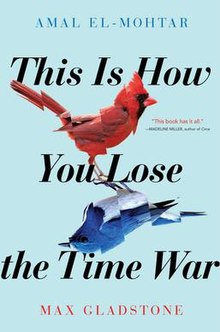
This Is How You Lose the Time War came out in 2019 and won several awards, but there was a resurgence of interest in the novella last month, when the book was a main character on a social media platform for a few days. Suddenly it was sold out everywhere, and libraries that had it in their collections were racking up long reserves lists on it. I’m here to tell you that this book lives up to the hype. Any time is a good time to pick up a good book—when it’s new, when it’s old, when it’s neglected, when it’s all the rage.
This time-traveling, epistolary novella is written by Amal El-Mothar and Max Gladstone. Each author wrote the letters of one character, who was writing to the other character, written by the other author. They had agreed to a general storyline before they started writing the letters to each other’s characters, but each author found the tale grew, delightfully, in the collaborative process.
This Is How You Lose the Time War is a quick and dazzling read, and it’s best if you know as little as possible before you start in on it. It won a Hugo Award in 2020, and a Nebula Award in 2019, and a British Science Fiction Award in 2019 as well. And it’s one of the social media “It” books of 2023. Everyone seems to like it—chances are good you might enjoy it, too.
El-Mohtar Amal and Max Gladstone. This Is How You Lose the Time War. First ed. Saga Press an Imprint of Simon & Schuster 2019.
Friday Reads: The Sentence, by Louise Erdrich
Sometimes, when authors narrate their own audiobooks, it turns out well. Even more rarely, it turns out amazingly well. I checked out The Sentence, the latest book from Louise Erdrich, from the audiobook shelf at the public library without looking at the narrator credit. I’m not sure what the hurry was—it came out in 2021 and I hadn’t read it yet. Once I was ready to listen, I saw that it was narrated by the author. This can be a real hit or miss situation, as any audiobook fan can tell you—narration is generally best left to professionals. I’m happy to share that Erdrich’s narration of her own book is fantastic, and brings new levels of appreciation for the text.
If you’re familiar with Erdrich’s work, you know that she understands her characters and their motivations deeply, and knows more about them than she puts on the page in black and white. Her narration of the dialogue in The Sentence illustrates this skill even further—each character speaks in their own distinctive way, with their own cadence and bluster or hesitation, with their own honesty and their own secrets.
The narration is so on point that I’m leading with that in this review, instead of where I would’ve expected to start: there is so much about books in this book. After a wild and tragic beginning in 2005, most of the story takes place in a bookstore starting in 2019, and that bookstore happens to be the bookstore Louise Erdrich owns in Minneapolis in real life. Erdrich herself is a character in the book—but she’s not one of the main characters. Her appearances in the bookstore, and the way patrons look for her there, are handled with comedic humility, and told through the eyes of our protagonist, Tookie, who works in the bookstore. (There’s also a ghost in the bookstore, but you should hear about that from Tookie.)
Tookie has a history, and a future, and a rich and nuanced love of books and authors and reading. Books have helped her through some hard times, and help her connect with other people, and find a way of living. (I ended up checking out the print book, also, so I could refer easily to all her book recommendations to bookstore customers.) The candid descriptions of customer interactions are refreshing, surprising—and validating. We are rooting for Tookie, and all her co-workers, especially since we know what’s ahead for the world and especially for Minneapolis.
Readers new to Erdrich may have heard that she handles heavy topics—she does! And no one handles the heaviest of topics in a more readable, listenable way. The Sentence deftly, compellingly, tackles every subject that one book-selling indigenous woman in Minneapolis might find in her life or her history—including her experiences in the summer of 2020.
Erdrich, Louise. The Sentence: A Novel. HarperCollins. 2021.
Friday Reads: Haven by Emma Donoghue
Before the pandemic, Emma Donoghue took a boat trip around Skellig Michael, an island off the Southwest coast of Ireland. Also known as Sceilg Mhichíl, the island became a UNESCO World Heritage site in 1996—but you might more likely know it from a little film called The Force Awakens, episode seven of the Star Wars franchise. Before Donoghue could actually set foot on the island on her second trip, travel restrictions went into effect, and she finished her research and wrote this book before visiting it again.
Haven is a fictionalized account of an early attempt to set up a monastery on the island. Three Irish monastics, who all had different paths to the religious life, set out on a boat from the Irish mainland around the year 600 to found a new holy order on the skellig. The island is both abundant and sparse, an allegory for the faith of the travelers. Donoghue goes into fascinating detail of the natural world of the island, especially the bird life, and fans of nature writing will appreciate this immersion into the physical world of the island. While the monks have different ideas about how to interact with the natural world, two of the monks, Cormac and Trian, have vowed to obey Artt, whose vision has brought them to the island. Artt’s faith, more educated and intellectual, is served well by a monastic life—but not by a natural life.
The struggle for survival, both physical and spiritual, is heart-wrenching and transformative. The narrative is both claustrophobic and expansive, which might sound like a familiar feeling to fans of Donoghue’s most famous work, Room. There are lessons for the characters, and so for the readers, about faith, about stewardship, about vulnerability and acceptance—as well as about which freedoms and responsibilities we embrace, and turn over, and perhaps wrestle back.
Here’s a fun article about how there are so many birds on the island, that when filming that Star Wars movie, it was easier to create a new monster to CGI over the birds: Porgs!
Donoghue Emma. Haven : A Novel. First ed. Little Brown and Company 2022.
Friday Reads: The Long Weekend, by Gilly Macmillan
I picked up The Long Weekend from the new audiobook display at the library, and I got what I wanted: a fast-paced, engrossing thriller to listen to on a long drive. The cover boasts “Three couples, two bodies, one secret,” and by the end of the first disc, I had counted way more secrets than that. Also, one of my favorite ingredients in thrillers—is there something supernatural happening, or is one of the characters just trying to make it seem like there is? (Is that a shapeshifter lurking near the barrows, or is it just someone who’s not happy to see you?)
The Long Weekend is a story about well-off people being not that nice to each other, except it is British, so I guess I’d call them posh people. A group of friends plans a weekend getaway to the North of England, but some of them are planning more than others are, and betrayals overlap like a dense fog. There are enough twists and turns to keep me guessing, and enough humor to keep the story popping along. I appreciate Macmillan’s storytelling strategy, like how we know pretty quickly who committed a murder—but not who their victim is. The character newest to the friend group is jealous of the closeness of the others, but then we learn how the original friends in the group also feel estranged from each other. One character is shown to be quite ruthless and cunning—and then they are manipulated by another party outside of the friend group.
There are multiple characters narrating the action, and I wish the audio tracks had been edited to indicate that. The audio is all recorded by Olivia Poulet, who has a fantastic reading voice, but it would have been helpful to not have the character narration switch within tracks, because the listener regularly has to figure out which character is narrating, and a new track starting would have been a good way to indicate that switch in character narration. This is not as much of a problem as it sounds like it would be—as clever and twisty as the story is, there is a formula here, and nothing remains indecipherable. Macmillan knows how to give us information about the characters and their relationships in a paced way that keeps us interested in learning more.
Macmillan, G. (2022). The long weekend: A novel.
Friday Reads: Fuzz: When Nature Breaks the Law, by Mary Roach
Do you ever go outside? Are you going to have to make small talk sometime in the near future? Do you have any curiosity about the natural world? Then Fuzz: When Nature Breaks the Law, by Mary Roach, is the book for you.
Of course, the law in question here is human law, and you can be sure that plants, animals and birds don’t really care about breaking these laws. (Which recalls the story Roach tells us, of the person complaining about the placement of a deer crossing sign on a busy stretch of road—wondering why the local authorities were encouraging deer to cross there.) This book is about how humans react and adapt to nature’s lawbreakers—and how we try to get nature to adapt to us. With varying degrees of success.
You’ll read about bears getting really clever about getting to human food (like opening refrigerators and moving egg cartons, without breaking eggs, to get to the good stuff behind them). There’s also the Australian army’s losing battle against farm-foraging emus. Do you have a guess what creature the FAA says is the most dangerous to aircraft? Chances are that you’re wrong, but this book will explain it. You’ll find out why scarecrows don’t work and why macaques will pickpocket your cell phone. (It’s because they know you will bribe them with food to get it back. Roach purposely gets mugged by a monkey to make sure.)
Mary Roach writes popular science texts on a variety of subjects, and she does hands-on, in-person research and interviews with colorful characters and experts in the field of the book topic. In this book, she rides along with scientists who point out eagle nests and hand her badger droppings, among other activities. She relates to and sympathizes with the real people she uses as resources for her books, understanding where they are at in the big picture she is trying to paint for the reader. She handles their human concerns with grace and respect. And she has a healthy respect for every other creature we humans share the natural world with. All of these stories are interjected with many humorous observations–and plenty of anecdotes to amaze your family and friends.
I’m listening to the audiobook on CD in my car as I commute and run errands. There are some things I appreciate about this audiobook and some things I don’t like as much. The author reads the book, and she does a great job. Her vocal delivery is clear, and personable, and a good choice for a book so full of one-liners that another narrator might not realize are supposed to be funny. I didn’t like that the audio tracks were over twenty minutes long. Sometimes I wanted to rewind and hear a part again, which is not unusual for a book I’m listening to while I’m driving, especially in a book so dense with facts and information. While it would be easy to rewind within tracks on a digital audio book, it’s not as easy to rewind within tracks on a CD heard on a car stereo. I do realize most audiobook listening isn’t happening on car stereo CD players these days.
(I also checked the print book out of the library so I could check some facts against my memory of what I heard. Isn’t it great to be able to get both formats from my public library? Yes, yes it is.)
Roach, M. (2021). Fuzz: When nature breaks the law.
Friday Reads: Dangerous Ideas: A Brief History of Censorship in the West, from the Ancients to Fake News, by Eric Berkowitz

I didn’t know what to expect from Dangerous Ideas: A Brief History of Censorship in the West, from the Ancients to Fake News, by Eric Berkowitz. It was on the new audiobook display at the public library when I went in to grab some holds. I hadn’t heard any advance press, and didn’t know anything about the author. And of course I have some strong opinions about the subject matter—what library worker doesn’t? I decided to give it a chance, and I’m glad I did.
Berkowitz is a lawyer and a journalist, and there is impressive scholarship here, with new angles on histories you think you might already know. It’s refreshing to read these new insights on familiar chronicles. It’s also interesting to see the long narrative arc of censorship through the centuries, and how there are periods of progress and regression, and how technology changes the conversation.
The historical insight on the use of censorship in Ancient Greece and Rome helps inform the history I’ve already learned, and I also think it would be interesting for someone without that previous grounding. The section on medieval England definitely draws some clear lines from then to now, and the evolution of the “marketplace of ideas.”
The section on WWII is especially interesting, and it gave me many anecdotes to share with others. I read about how censors in many countries changed standards quickly, as feelings about involvement in war changed—and how when alliances changed, censorship followed. And how changes in censorship informed the public’s feelings about the war.
The author’s observations of the modern era are clear-eyed, and he doesn’t pretend to have answers he can’t have. This might frustrate some readers, but I found it honest, and without the stridence that usually underlies discussions of censorship today. The author does note how censorship is changing with new media, and I think anyone interested in this topic would benefit from engaging with this discussion.
Berkowitz, Eric. Dangerous Ideas: A Brief History of Censorship in the West, from the Ancients to Fake News. 2021.
Friday Reads: The Perfume Thief by Timothy Schaffert
![The Perfume Thief: A Novel by [Timothy Schaffert]](https://m.media-amazon.com/images/I/51WuR6krS9L._SY346_.jpg)
I’m reading the new WWII novel, I’m reading the new perfume novel, I’m reading the new WWII perfume novel, and it’s delightful and I don’t want it to end.
I’ve been looking forward to reading The Perfume Thief by Timothy Schaffert, and it’s finally here! The publisher describes the book as “A Gentleman in Moscow meets Moulin Rouge.” I’m ready to follow Clementine, a raconteur in tailored suits, who’s spent her seventy plus years living life her way—while happening to break all of society’s rules. Now she’s facing a big change in her life—the Nazis are threatening to destroy Paris, including the vibrant underground scene she loves. It turns out she has some very exceptional skills, honed over decades of her refined and indecent life, that can help hand defeat to the Nazis. She just has to thread the needle carefully, with the finest silk, of course.
I imagine a few agents in Hollywood are getting calls about playing the part of Clem in the movie that must happen. I can see Helen Mirren and Meryl Streep fighting over the part, but I can see Jamie Lee Curtis owning it. Of course Cate Blanchett or Tilda Swinton, although they are a bit young for the part—isn’t that refreshing? Casting suggestions are welcome in the comments, of course. (Not just for Clem, but also for Zoe St. Angel, and also the villain, Oskar Voss.)
Did I mention Clem is from Nebraska? Did I mention Schaffert painstakingly researched Paris life, down to the weather reports on every day in the book? Did I mention it’s a page-turner? Excuse me while I get back to enjoying The Perfume Thief.
(We did write about The Perfume Thief here as well–yes, we’re fans! And yes, our Book Club Kit is available for Nebraska libraries to check out, and details are at that link.)
Schaffert, T. (2021). The Perfume Thief.
Friday Reads: Killers of the Flower Moon by David Grann
Killers of the Flower Moon is about the investigation of a crime, but as it tells that story, we learn about the different worlds of all the involved parties. Careful and enthusiastic research helps Grann tell us an interwoven story, and we want to keep reading because the story is so compelling.
I don’t want to give too much away, but if you are interested in American history, this book is full of history you didn’t learn in school, and it is fascinating and shocking. I listened to the audiobook, and there were three different narrators for the three different sections. This was an effective choice, and each narrator was an engaging reader, and a good match, for their section.
The first section lays the groundwork for the story, about the Osage Nation in Oklahoma, when they were the richest population on earth (per capita) in the early 1900s. The second section is about the different investigations of a series of murders, and how diligent those investigations were, or were not. (This section also includes a lot of information about the structure of the FBI and the influence of J. Edgar Hoover on changes in the FBI.) The third section pulls back the camera even further, to observe more about the context and meaning of the crimes being investigated, and to illustrate the personal cost to families in the Osage Nation.
When I say “pulls back the camera,” that brings up another point of interest. I missed the original buzz about this book when it came out in 2017, and I checked it out recently, after hearing that Martin Scorsese was involved in a film adaptation. You might want to read it before you see the movie, or even just to get the references you will see online. Like this joke from Twitter this week.
Grann, David, Ann M. Lee, Will Patton, and Danny Campbell. Killers of the Flower Moon: The Osage Murders and the Birth of the FBI, 2017. Sound recording.
Friday Reads: The God of Small Things by Arundhati Roy
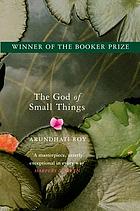
I just started The God of Small Things by Arundhati Roy, and I’m so glad I did. Over a foot of snow on the ground outside calls for some entertainment set in warm climes. Summer in India reads really well right now.
I bought this book a few years ago, when it was required for a class I was taking, and then the school changed the professor for the class, and that new professor changed the books. This book was the one from the original slate that I was looking forward to the most. I was happy to take it off the shelf this week. It’s the story of twin boys and their connection to each other, as their family, which is already going through some things, welcomes visiting relatives who have their own problems. It’s lush and full of surprises from the beginning, and yet never goes out of rhythm.
This is Roy’s first novel, and it follows her training as an architect and her work as a production designer. There’s a lot going on in this book, but we’re in good hands. Roy knows her details and characters and shares them with us luxuriously, but never overwhelms us. Her vision is clear, and her characters are wonderfully flawed, and their relationships are familiar, yet unexpected, in their complexity.
And of course, The God of Small Things won the Booker Prize, which is always a good recommendation. If you like well-planned sprawling stories about families full of interesting characters, and not a snowdrift in sight, you will want to check it out.
Roy, Arundhati. The God of Small Things. New York: Random House, 1997. Print.
Friday Reads: How To Know The Birds by Ted Floyd

Birding, or bird-watching, has grown in popularity as an enjoyable activity that allows for social distancing. Birding also lets us re-center ourselves while connecting with the natural world. Of course, birding was a popular pastime even before 2020, and there are lots of books on the topic. Ted Floyd’s book, How to Know the Birds, takes a refreshing and elegant approach that will intrigue new and seasoned birders alike.
Floyd structures the book in a new way. He takes the stages of interest in birding, and lays them over the natural seasons and how those affect birds and birding, and then explores those themes by discussing one bird at a time, in a personal way. It reads much more easily than that description might lead you to believe! Each section is a bite-sized chunk that can be devoured quickly. A reader could jump around in the book, as one might with a traditional bird field guide, or read it beginning to end. This book is a good resource for the new or the experienced birder, and it would also be a great gift for the seasoned birder that thinks they’ve read all the bird books.
Floyd, Ted, and N J. Schmitt. How to Know the Birds: The Art & Adventure of Birding. , 2019. Print.
Friday Reads: Kindred by Octavia E. Butler
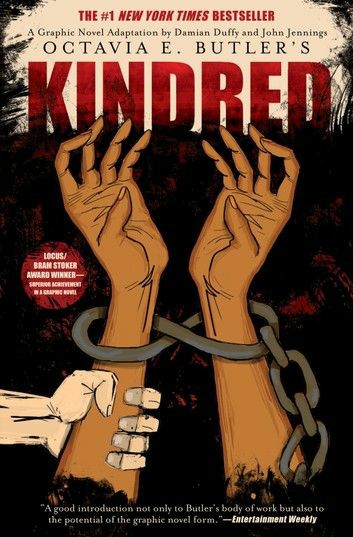
Hello, Library People. I can pretend I’m writing this Friday Reads for the whole world, but I know my likely audience, and I’m writing it for library people. So, hi there, library people!
Today I walked into my public library for the first time in months, and I went to the shelf to look for a book (that I looked up in the online catalog before I went into the building), and the book was where it was supposed to be, and I got to check it out and take it home, and I am excited to read it. I appreciated every step of this process so much. I know and love people who work in libraries, and I care about their safety—and I even care about the safety of library people I don’t know (or love?)—so I understand why I wasn’t able to go into my public library’s physical space like this last month, or the month before that. I will understand if circumstances require that it happens again, that I can’t soup-to-nuts my whole borrow for myself. I just want to emphasize that I appreciate being able to go into my local public library, and I won’t take it for granted.
Now, that book I’m excited to read (or, at this point, to keep reading). I was looking online to see what Octavia E. Butler works were available to check out at my local branch, and I saw they had this book that I was surprised I didn’t already know about: a graphic novel adaptation of Butler’s novel, Kindred.
Speculative fiction gets a bad rap for being escapist, which is a hard argument to fight because it presupposes there’s something wrong with escapism in entertainment. And graphic novels get a bad rap for being comic books, which again is a hard argument to fight because it presupposes there’s something wrong with comic books. For this reader, though, I saw the recipe for a great read.
If you want a story that lets you leave your world completely, yet teaches you more about the world you eventually have to go back to, then Octavia E. Butler is a writer for you. Butler writes literary speculative fiction, or speculative literary fiction, whichever word arrangement makes you more comfortable. Library people, since I’m writing this for you, I will tell you why you’ll like Kindred in particular. As a library person, you have strong views about genealogy. Whether you love or hate genealogical research, that familiarity facilitates an instant interest in this plot: A young Black author in the living in 1970s California meets her White slaveholder progenitor—and her safety and her very existence depends on his survival in the antebellum South.
Kindred is available as a novel, and an audiobook, and a graphic novel. (A movie is in post-production, but theatrical releases are all messed up right now, so no telling when that’s coming out, but it stars Janelle Monae, so you’ll be hearing good things about it.)
Duffy, Damian, John Jennings, Nnedi Okorafor, and Octavia E. Butler. Kindred: A Graphic Novel Adaptation. , 2018. Print.
Friday Reads: Everything Inside by Edwidge Danticat
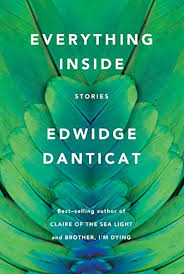
I was ready for a book of short stories, for compelling characters in intriguing situations, and I found that in a book I’d been meaning to pick up for a while: Everything Inside by Edwidge Danticat.
Danticat manages to touch on all aspects of life—births and beginnings, deaths and ends, and all in between—while telling stories about the unexpectedly small parts of life.
And it is obvious Danticat knows everything about her characters, even if she doesn’t tell us everything. She knows what they think about when they fall asleep and which sock they put on first. That’s how she knows what details to share with the reader. She’s just telling us what we need to know to tell the story the characters inhabit. So we have a sort of intimacy with them, like we’re right next to them in Port-Au-Prince, in Miami, in an unnamed Caribbean country, or even falling through the air.
Danticat, Edwidge. Everything Inside. New York. Alfred A. Knopf, 2019
Friday Reads: The Lady From the Black Lagoon
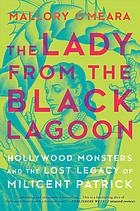
The Lady From the Black Lagoon is a biography, but it’s also not a biography. Sure, it’s the compelling life story of Milicent Patrick, a woman on both sides of the Old Hollywood camera. Milicent was a striking figure in front of the camera, but she was a real trailblazer in the world of make-up and design—specifically monster design, most notably, the Creature from The Black Lagoon. It’s also the story of her biggest fan, author Mallory O’Meara, and her quest to find out Milicent’s story, and her determination that Milicent get the credit she deserves for her work.
Along the way, O’Meara faces challenges. Milicent reinvented her identity many times, and used variations of her name personally and professionally–which was not unusual in Hollywood by any means, but it still poses research challenges. Luckily, O’Meara was already knowledgeable about Old Hollywood, and it was her voracious interest in old monster movies that led her to Milicent in the first place. O’Meara also gets some good research advice from some helpful librarians and archivists, which warmed this library worker’s heart.
This book is full of amazing stories. We get Milicent’s childhood years spent growing up on the Hearst Castle grounds, because her father was an engineer on that never-ending project. We also get the complicated family relationships that shaped Milicent’s life. We learn a lot about the behind-the-scenes production of Old Hollywood movies—and what a tough place it was for a woman to work, and how easy it was for Milicent’s labor to be exploited and almost erased. What really brings it all together, though, are the parallels that O’Meara is able to draw between her own career in movie production, with Milicent’s experience. O’Meara understands why Milicent chose to fight some battles and chose to walk away from others, and shares her own stories—some inspiring, some frustrating. (I have a guess who the unnamed voiceover jerk actor is, so let me know if you do, too.)
I listened to this book, and the author read it. That’s a risk—and in this case, it’s one that paid off! The author has a pleasant and clear voice, and her passion for her subject comes through loud and clear. After listening, I learned that it’s on many best-of lists for 2019, and I’m not surprised one bit.
O’Meara, Mallory. The Lady from the Black Lagoon: Hollywood Monsters and the Lost Legacy of Milicent Patrick. , 2019. Print.
Friday Reads & BookFace Friday: Bivouac by Kwame Dawes
I’m reading Bivouac by Kwame Dawes, and I’m reminded that the 1980s were more than a station on your satellite radio. (And does your 80s station play Burning Spear as well as Musical Youth?) The novel is set in Jamaica, and politics are tumultuous throughout the region, and the activist father of our protagonist has died. It could be murder, but that murder might be medical malpractice, or it might have been as assassination.
Dawes uses a notable structural technique in telling the book from more than one viewpoint, and it feels modern as storytelling, extratextual—and the structural choices in form suggest to the reader that they consider the structural forms of the novel, and of family, and of political organization.
The formal structure only helps the reader become more intimate with the characters, and there is much to know. I’m thinking about the problem of guilt for a person who does not have good luck, but has still better luck than people close to them. I’m thinking about how a person can lose a progenitor but have that family live on as a symbol of something important to them—and how that can create tension between the love they feel for family, and the reality they have to continue to live in without that family present. You can’t resolve anything with someone who is gone, except by resolving with yourself. And everyone who is left behind has their own grief, and not all grief gets along.
Review by Lynda Clause, Nebraska Library Commission employee
Dawes, Kwame S. N. Bivouac: A Novel. , 2019. Print.
Meet the author at the upcoming Nebraska Book Festival September 7th in Lincoln.
Posted in Books & Reading
Tagged #FridayReads, Bivouac, bookface, bookfacefriday, Friday Reads, Kwame Dawes, Nebraska Author, Nebraska Book Festival
Leave a comment

